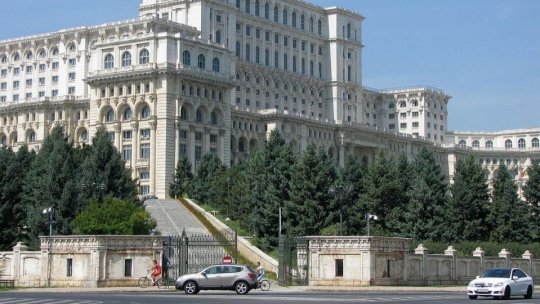Unprecedented protest of magistrates in Romania
Judges and prosecutors gathered outside courthouses, in silent protest, holding banners that read “Independence,” “Rule of law,” and “Mister Minister, enough”.

Articol de Sergiu Şteţ, 23 Februarie 2019, 20:27
Magistrates from several areas of Romania protested in front of courts on Friday, February 22, and many prosecutors will suspend work next week, in an unprecedented protest against changes in judicial legislation that have triggered alerts over the rule of law.
Romania’s Government has modified the legislation by emergency ordinance, largely lowering prosecutors’ prerogatives. It was the latest in a series of changes the ruling Social Democrats have made over the past two years that have triggered massive street protests.
European Commission, US State Department and thousands of Romanian magistrates have said that the changes threaten the independence of the judiciary and the rule of law. "Sudden changes to the laws of justice through emergency ordinance, without consulting the Superior Council of Magistracy and the body of magistrates, have a major impact on the capacity of the entire body of prosecutors to carry out their constitutional tasks", Bucharest prosecutors said in a statement.
Judges and prosecutors gathered outside courthouses across the country on Friday, 22 February, in silent protest, holding banners that read “Independence,” “Rule of law,” “An independent judiciary has independent prosecutors” and “Mister Minister, enough”.
Prosecutors in lots of cities across Romania will not work on files except emergency ones, starting Monday for three to seven days.
Many judges will proceed similarly. Associations of prosecutors and judges have met to decide on further forms of protest.
Romania is regularly ranked one of the most corrupt states in the EU, and Brussels has been keeping its justice system under special monitoring since it joined the EU in 2007.
The country's anti-corruption prosecuting agency, DNA, has convicted thousands of public officials, including ministers and lawmakers, for high-level corruption. DNA efforts have gained appreciation from Brussels, diplomats and foreign investors, but also contempt from most local politicians.
Social Democrats argue that changes aim to reduce abuses committed by magistrates. So far, the party has ignored European Commission's recommendations to reconsider the changes.
Source:REUTERS













